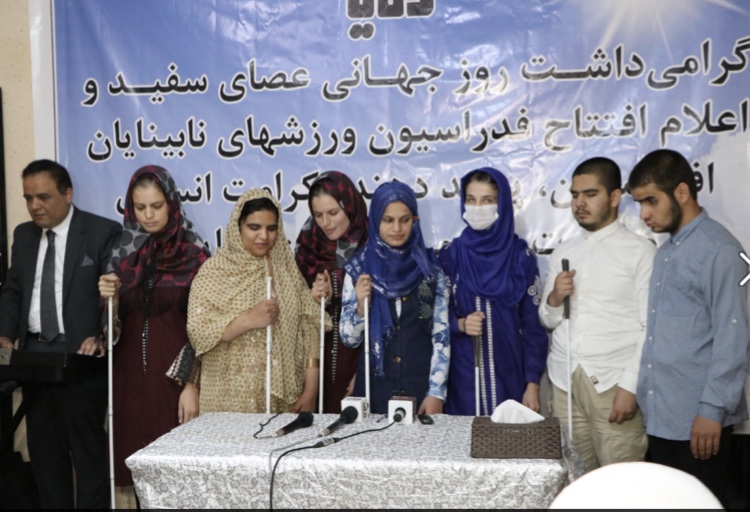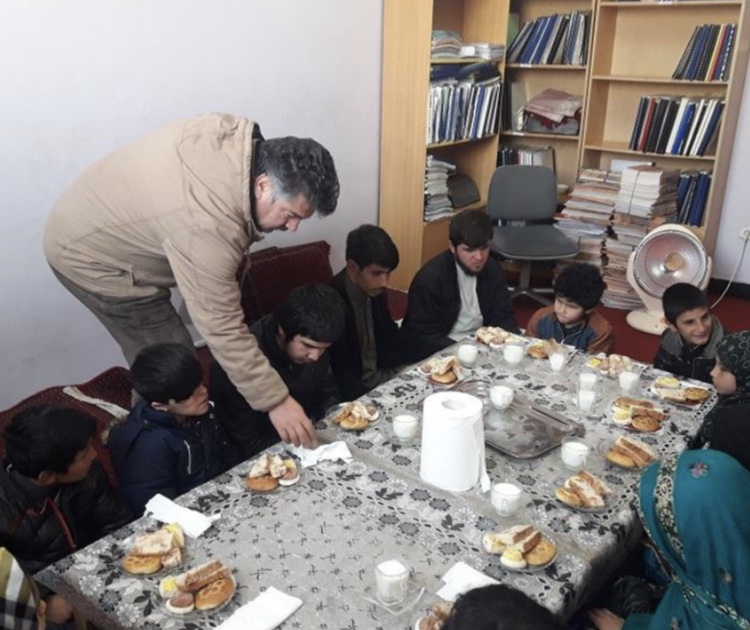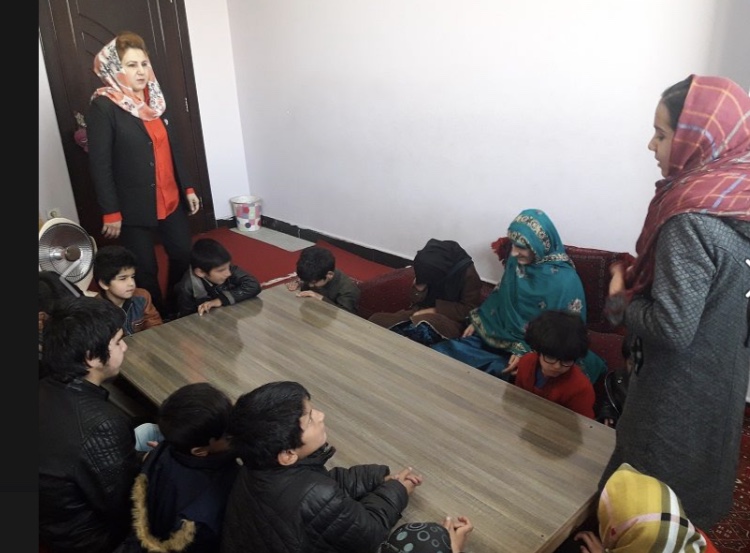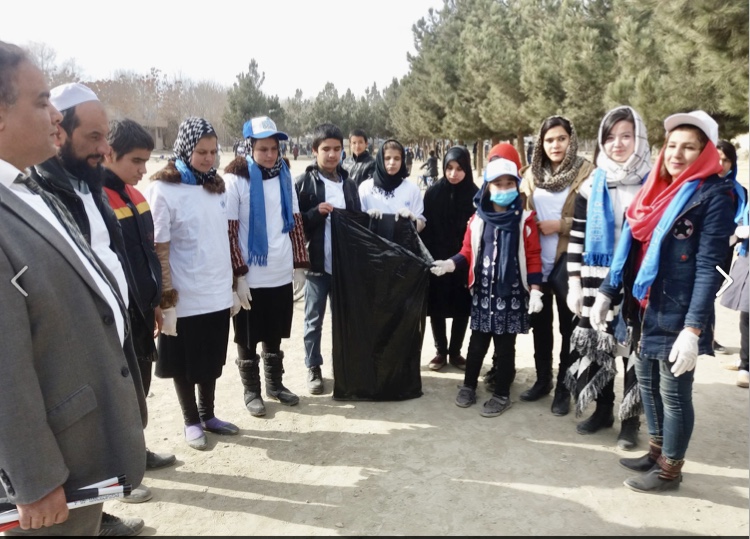Story
Hello Every-bodies
I am asking you to consider supporting Rahyab, an Afghan NGO founded by Benafsha Yaqoobi and Mehdi Salami.
Benafsha and Mehdi are human rights defenders: Benafsha is a Commissioner of the Afghan Independent Human Rights Commission. Benafsha and Mehdi are currently in the process of being resettled in the UK, having had to leave Afghanistan after the takeover by the Taliban, in August 2021.
I have no formal connection with Rahyab but bring this important opportunity to help Afghan young people with vision impairments to your attention.
What is Rahyab?
The Organization of Rahyab for Rehabilitation Services for the Blind (ORRSB), based in Kabul, Afghanistan, came about as the fruit of ideas of persons with vision impairments, as well as those interested in promoting and protecting their rights.
“Rahyab” is a Dari Persian word meaning “path-finder”.
What are Rahyab’s goals?
Rahyab was founded by Benafsha Yaqoobi and Mehdi Salami and registered under the Afghan Ministry of Economy as an NGO in 2008, in order to achieve the following goals:
a. Reducing next generation disability cases.
b. Providing rehabilitation and assistive education of students with vision impairments, so that students are able to enter ordinary schools, as part of “inclusive education”.
c. Advocacy and awareness-raising of the rights of people with disabilities, especially those with vision impairments.
Rahyab’s educational services support people with vision impairments.
Rahyab’s advocacy supports all Afghans with disabilities, lobbies the Afghan Government, and helps to build a more informed society tolerant and respectful of the rights of people with disabilities.
What has Rahyab done from 2008 to 2021?
Here are some of Rahyab’s achievements and impact:
a. As part of the “inclusive education” programme, approximately 100 students with vision impairments who have received educational support including training and equipment from Rahyab have been mainstreamed into public schools. Some of these students are currently enrolled in university. In 2021, Rahyab’s first female high-school student graduated and will, hopefully, enter university in 2022.
b. For the first time in Afghanistan, Rahyab provided computer training for persons with vision impairments, using screen-reading software installed in an ordinary computer, with two batches of 10 trainees, equally divided between women and men trainees. 50% of the trainees subsequently entered the job market, and the remaining 50% benefitted from this training as a crucial component of their university education.
c. For the first time, Rahyab had the privilege to celebrate inside Afghanistan, International White Cane Day (October 15) celebration, which was subsequently celebrated on an annual basis at a high governmental level during recent years, thereby visibilising the rights of persons with disabilities across the country.
d. Rahyab has produced 4 documentaries, aiming at raising awareness of both the challenges and capabilities of people with disabilities. These documentaries have been shown at various national and international conferences and festivals.
e. Rahyab has been part of broader Afghan civil society efforts to propose amendments to the national law on the rights and privileges of persons with disabilities, in order to align it with the United Nations Convention on the Rights of Persons with Disabilities (UNCRPD). Rahyab has worked closely with the Advocacy Committee for the Rights of people with disabilities (ACPD), an initiative of the Afghanistan Independent Human Rights Commission (AIHRC), and other civic society and government sectors related to disabilities
Why does Rahyab need help?
From 2011, Rahyab was funded by Nutrition Educational International, based in Pasadena, the U.S.. In 2019, Rahyab’s funding was reduced, and, following the Taliban takeover of Afghanistan in August 2021, funding to Rahyab has been entirely cut.
The Taliban’s restrictions on girls’ education, the employment of women and restrictions on women’s and girl’s freedom of movement have made it highly challenging for civil society organisations to function across Afghanistan.
Due to these challenges, Rahyab has limited its plans for 2022.
What are Rahyab’s plans for 2022?
Whilst recognizing the challenges of operating in Afghanistan at this time, the needs and rights of people with vision impairments continue.
As such, Rahyab plans to carry out the following activities in 2022:
a. Support 20 school-going students with vision impairments, through home-to-home weekly visits and providing them with special stationery
b. Specifically, for girls deprived the right to go to school, online learning and home-to-home weekly visits will be provided.
c. Provision of computer training for 10 persons, comprising of girls and boys equally, with vision impairments for 6 months.
How much will it cost to support Rahyab’s activities in 2022?
1. Manager - US$100 per month for 12 months = US$1200
2. 2 Part-time trainers - US$100 per month for 12 months x 2 = US$2400
3. Part-time computer support - US$50 per month for 12 months = US$600
4. Braille and assistive stationery - US$50 per month for 12 months = US$600
5. Additional costs e.g. communications, occasional gatherings, etc = US$25 per month for 12 months = US$300
Total = US$5100 = £3800
The final word from the founders of Rahyab, Benafsha Yacoobi and Mehdi Salami currently in the process of being resettled in the UK:
"We would like to express our gratitude and acknowledgments to everybody contributing to this inspirational programme, as helping hands to those deprived of their rights, specifically the right to education, and, specifically, girls and women who were thrown out of the education loop. Hopefully, your support will help to create an opening for them to a brighter world in the future".



